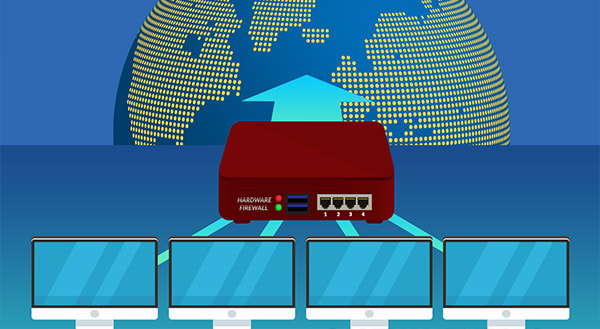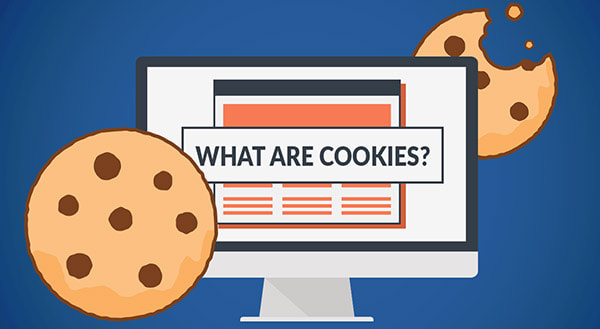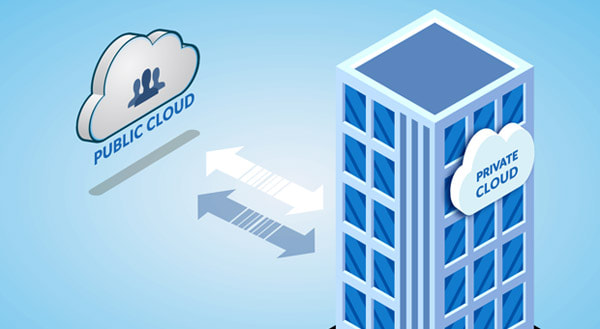|
When you sign up for an internet service, the provider will hook you up with an email address, too. Your internet service provider (ISP) wants to keep you connected to them. But this convenient email address isn’t always the best long-term solution for you. That “[email protected]" email address may work fine. You use it to keep in touch with your family and friends, you get bills to that address, and you’ve used it to login to your social media and online news and shopping sites.
But relying on your ISP for your email address may not be the best strategy for you. Here are some drawbacks to consider. #1 If you rely on your @isprovider.com address, you could end up locked in with poor service or high prices. You feel stuck because you can’t take your email address with you if you want to switch providers. #2 Internet service providers are not in the email business, whereas email providers such as Gmail and Outlook are always working to improve. Your ISP may not have updated its email offerings for a decade. #3 Most ISPs have very limited storage space for email, which can make your service less reliable and convenient. #4 Also, ISPs don’t make the same effort to keep your email secure and your inbox spam free. A provider more focused on email services offers more sophisticated filtering. ISP emails usually have primitive spam filtering that is easy to bypass. #5 With an ISP email, your email is often accessible only on the provider’s mail servers, and you need to be able to access those servers to get to your emails. A cloud-based email provider lets you access your inbox via a Web browser. So, it doesn’t matter where in the world you are; you can still get access. #6 You might be supporting a local ISP with your business. If that smaller provider goes belly up, however, your email address is gone forever, too. Making the switch to an email provider You may feel compelled to remain loyal to your ISP because changing your email address is a headache. Yet migrating to a Web-based email provider on your terms will help. You'll have a smoother transition if your ISP allows you to download your current address book. Fortunately, once you make the switch to a Web/cloud-based email provider, you can move ISPs without it making any difference to your email communications. You could even pay a small fee to upgrade your email with a custom domain name. Maybe you’ve always wanted to have your email come from @yourlastname.com, because it looks cool. Or, if you have a home business, you could have your email come from @yourbusiness.com. This looks more professional, and you can move the address to any provider, as the domain remains the same. Whether you’re using an ISP or Web/cloud-based email provider, it’s also a good idea to back up your emails. By downloading and backing up your email, you gain more control and peace of mind. We can help you find the right email provider or ISP for your needs. We’ll help you migrate your email, and we can set up a backup too. Let us help you, call us now at 262-515-9499. A firewall sounds like a pretty intense thing – unless you’re an action-movie stuntman. Yet when it comes to internet security, you may not have as much firewall protection as you need. Many internet security products bundle antivirus and firewall software, and many users think this is enough. But first, let’s be clear about what a software firewall actually does:
There are drawbacks, though. Software firewalls work only on the computers on which they are installed, and you’ll need to buy multiple licenses to protect several computers. You also need expertise to administer the firewall to keep up with changing threats. And there are security threats. Bad actors target software firewalls. They're right there on the computer they seek to exploit. Beefing Up Your Firewalls Many businesses also use hardware firewalls to add security. A hardware firewall around your office network acts as a perimeter boundary. The hardware firewall is like the border guard keeping an eye out for dangerous traffic. The firewall inspects incoming internet traffic to protect you from malware and cyber-threats. IT experts can set up firewalls to pass only safe data. This adds a layer of protection to your network and also secures network-connected devices. Workstations, printers, digital equipment, and telephone systems often don't have software firewalls. So, combining firewalls protects both local computers and other devices on your network. The hardware firewall checks traffic coming in from and going out to the internet, whereas the software firewall secures what’s coming into or out of the computer, even from internet sources. Think about it this way: A cyber-criminal is trying to access your systems. They take many approaches, one of which is trying to breach your network perimeter. Another is sending targeted communications to sucker someone into clicking on a virus-laden email. The hardware firewall could stop the perimeter attack, but the software helps stop the malware infection spreading from the user’s computer to others in your office. Partner with a Firewall Expert Firewalls can give your business tremendous control over:
Yet both software and hardware firewalls need the right expertise to install correctly. Firewalls must be regularly monitored and managed, because threats are constantly changing. Combining firewalls adds protection but only if you configure them to minimize weaknesses. You’ll need someone to identify compatibility issues and avoid blocking legitimate data. Partner with an IT expert. We know how to work with firewall rules, and understand what they mean and how to react to alerts generated. Have you heard of a breach that compromised Target's point of sale systems? That fiasco involved ignored firewall alerts! Don't let it happen to you. We can help you set up and maintain the firewall protection you need. Contact us today at 262-515-9499! Fresh-baked cookies are yummy, but you may not have the same positive associations with cookies on your computer. Here’s what you need to know about cookies and what they mean for your internet browsing. Cookies have been around for a long time, but new laws now require websites to ask for your permission to use them. You’ve likely noticed more sites informing you that “this website uses cookies,” and they’ll ask you to click to accept the use of cookies. But what exactly are you agreeing to? A website cookie is a small piece of text the website you are visiting stores on your computer.
Cookies are equivalent to your ticket to get onto the website. Website owners track your individualized code to gather information. Cookies tell the website that the user has been to the site before. The website can recall personal login information and other preferences. A shopping site will remember your cart and let you continue shopping, or suggest other goods you might like. Viewing and Controlling Cookies So, why are sites asking for permission to store their cookies on your computer? Users are more concerned now about the digital footprint they are leaving on the Web: they want to protect their Web history. Let’s be clear. When you accept a cookie, you are not allowing access to your computer or any of your personal data, unless you have knowingly provided it as you do when online shopping, that is. Also, it’s not possible to execute code from a cookie. That means a bad actor can’t use a cookie to deliver a virus or malware. Overall, cookies on their own are safe. Agreeing to first-party cookies from the website simplifies session management, personalization, and tracking. The danger comes from third-party cookies generated by advertisers or analytics companies. Say, for instance, you surf to a webpage that has 10 ads on it. You don’t even have to click on any of those ads to generate 10 cookies. These cookies track your browsing history across the Web on any site carrying their ads. That’s why people are becoming more wary of the privacy implications. That’s the Way the Cookie CrumblesUsers can make their own cookie choices. Those who allow cookies will enjoy a more streamlined Web surfing experience. Those who don't want cookies tracking their browsing history will opt out. Without cookies these users have to re-enter their data every time they visit a website. Often you can control your cookies in your browser settings. In Google Chrome, for example, you’d select “Settings” from the menu drop down in the upper-right corner, then “show advanced settings” and then “content settings.” In the Cookies section you might choose “Keep local data only until you quit your browser” and “block third-party cookies and site data.” If you’re really annoyed by the pop-ups asking you about cookie use, you can install a browser add-on, too. The “Incognito” mode on your browser can be used to save cookies for the current session, but when you close the browser the cookies will be deleted. We can help you minimize the extent to which you are being tracked on the internet. Contact our IT experts today at 262-515-9499. If you want to serve actual cookies if we visit you at home to do the work, we won’t complain. The Rolling Stones sang, “Hey you, get off my cloud,” yet businesses might want to think instead about leaving the public cloud. Weigh these possible public cloud concerns against the advantages of alternate cloud solutions. When most people think of the cloud, they are thinking of the public cloud. Apple users are on its iCloud. Others may be storing files on Dropbox, OneDrive, Google Cloud, or other services. These all typically have a free level of service. You can pay a monthly fee to upgrade based on the resources you use. Cloud data is easy to store and access. This can enhance business productivity and efficiency. Added advantages of hosted cloud services – public or private – include the following:
Yet there are some drawbacks to the public cloud. The public cloud is affordable because businesses share resources. The cloud service provider relies on economies of scale. They bring many businesses together for the same services, and it all adds up. But if you’re in an industry with high compliance requirements, the public cloud is a risk. Advantages of the Private CloudThe private cloud offers the same benefits as the public cloud – and more. A private cloud solution is dedicated to your business: yours is the only data on the server. This is a more secure solution offering greater visibility and infrastructure control. A private cloud can be on- or off-premises. On-premise, your IT team sets up, manages, and maintains the cloud infrastructure. Off-premises, a cloud services provider customizes a dedicated and secure cloud. The private cloud is appealing to regulated industries, government agencies, and tech companies needing strong controls. It is more expensive but allows businesses to easily access data, applications, and backups, and with reduced security risks. Cloud Flexibility with a Hybrid OptionA third alternative is the hybrid cloud. The business takes advantage of both public and private cloud solutions. You decide which apps and data workloads need more security. Meanwhile, the public cloud is available to offer cost savings and efficiency, plus, it can be a backup for sporadic traffic spikes. The hybrid option, though, requires strong integration between private and public cloud deployments. Managing the mix of architectures can prove challenging. Understanding the difference between these cloud offerings can help you choose the best for your business. Need help migrating to the cloud or changing your cloud solution? Our IT experts can help you weigh the tradeoffs and determine the best one for your needs. Contact us today at 262-515-9499! |
Tech Force BlogWe provide you with important, practical tips and insight for your technology and networks for both home and business. Archives
March 2024
Categories
All
|
Get in touch with us! |
See what our clients have to say...
Very pleased with Tech Force! We've been using Tech Force for over four years now. We've had a lot of different people do computer and IT stuff for us, but Tech Force is the first to come in and implement a plan. The plan was executed and we've had no problems. |
More Client Reviews
Read Our Customer Reviews |
We service Racine, Mount Pleasant, Sturtevant, Wind Point, Union Grove, Elmwood Park, Franksville, Caledonia, Kenosha, Somers, Pleasant Prairie, Bristol, Parkside, Oak Creek and Franklin, WI and surrounding areas. Copyright © 2009-2024 Tech Force Computer Service, LLC.





 RSS Feed
RSS Feed
